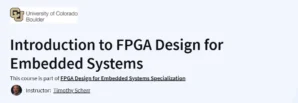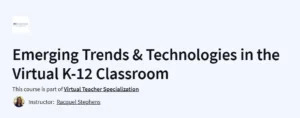What will you learn in Introduction aux Droits de l’Homme Course
Understand the origin, foundation, and evolution of human rights.
Identify major international instruments and enforcement mechanisms.
Analyze how human rights are protected in various global contexts.
Evaluate real-world case studies related to violations and protections of rights.
Program Overview
Module 1: Foundations of Human Rights
⏱️ 1 week
Topics: Historical development, philosophy, and universal declarations.
Hands-on: Identify rights in historical charters and analyze foundational texts.
Module 2: Civil and Political Rights
⏱️ 1 week
Topics: Freedom of expression, right to vote, protection against torture.
Hands-on: Case analysis of human rights violations in authoritarian regimes.
Module 3: Economic, Social and Cultural Rights
⏱️ 1 week
Topics: Right to education, health, work, and adequate living conditions.
Hands-on: Compare country-level commitments to these rights.
Module 4: Mechanisms for Human Rights Protection
⏱️ 1 week
Topics: UN system, regional courts, and NGOs.
Hands-on: Map the structure and role of various protection bodies.
Module 5: Human Rights in Practice
⏱️ 1 week
Topics: Contemporary challenges, state accountability, activism.
Hands-on: Analyze recent human rights conflicts and propose solutions.
Get certificate
Job Outlook
Relevant for careers in international law, human rights advocacy, public policy, and development.
Roles include NGO officer, legal analyst, UN agency staff, or human rights educator.
Growing global demand for rights-based training in both the public and private sectors.
Salary ranges vary widely: $35,000–$100,000+, depending on region and specialization.
Specification: Introduction aux Droits de l’Homme
|
FAQs
- Analyzes real-world case studies of human rights violations.
- Introduces mechanisms for protection in international and regional contexts.
- Provides tools for critical assessment of government and NGO interventions.
- Teaches ethical considerations when operating in conflict environments.
- Encourages solutions-oriented thinking for improving human rights protections.
- Explains roles of NGOs, UN bodies, and civil society in advocacy.
- Provides frameworks for promoting rights in different social and political contexts.
- Teaches communication strategies for raising awareness.
- Encourages analysis of successful advocacy campaigns.
- Supports understanding of ethical and legal considerations in activism.
- Provides foundational knowledge of human rights law and instruments.
- Covers enforcement mechanisms and legal frameworks at international and regional levels.
- Teaches analysis of case studies relevant for legal reasoning.
- Supports understanding of ethical, social, and political dimensions of law.
- Prepares learners for roles in NGOs, UN agencies, or legal advocacy.
- Designed for beginners with clear explanations and practical examples.
- Introduces key concepts, historical evolution, and universal declarations.
- Uses case studies to contextualize learning.
- Encourages active participation in analysis and reflection.
- Provides a certificate to showcase foundational knowledge in human rights.
- Explores protection mechanisms in various countries and regions.
- Analyzes cultural and societal factors influencing rights interpretation.
- Encourages critical evaluation of universal vs. local perspectives.
- Provides comparative case studies for practical understanding.
- Supports developing globally informed strategies for promoting rights.





